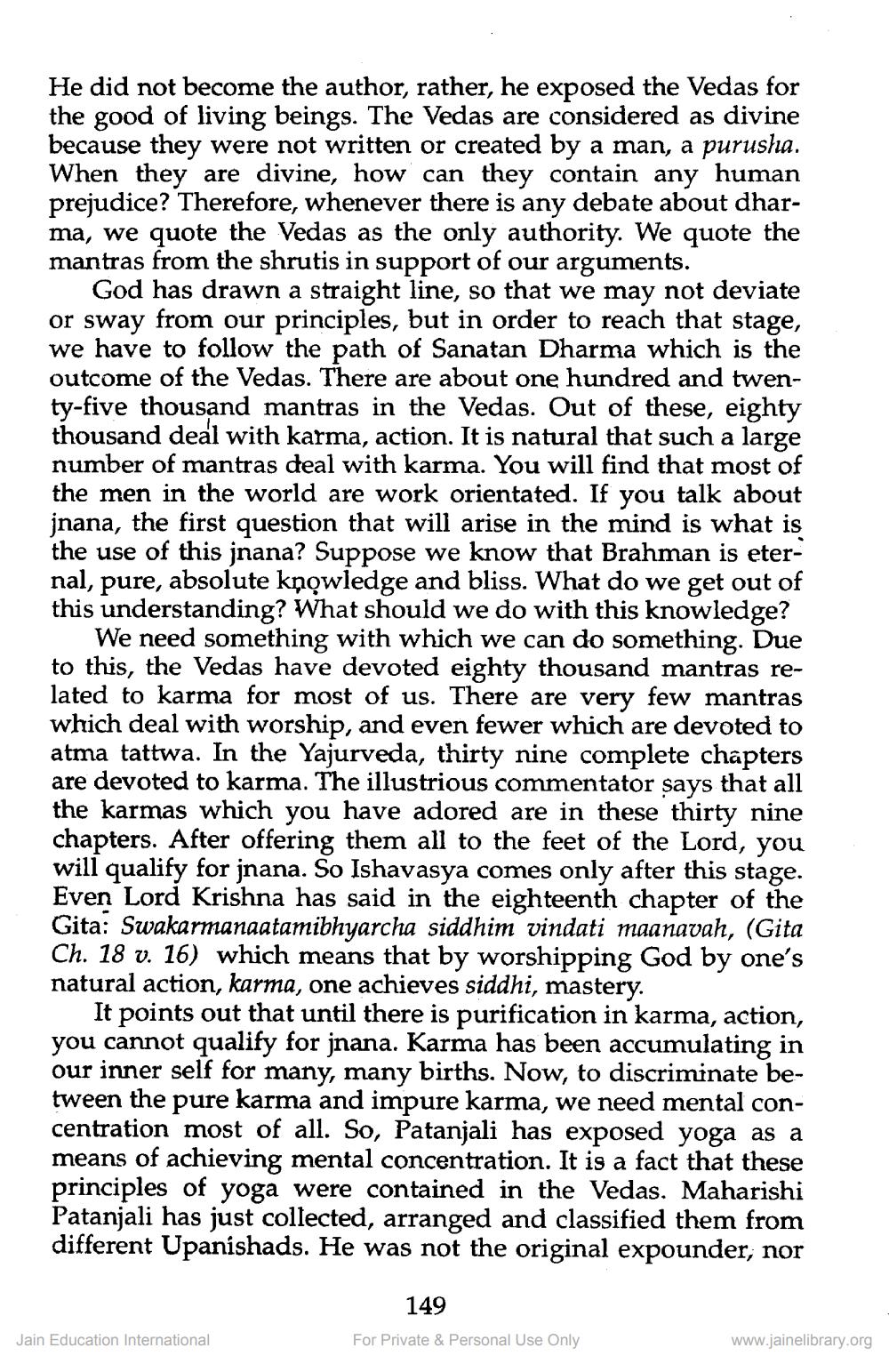________________
He did not become the author, rather, he exposed the Vedas for the good of living beings. The Vedas are considered as divine because they were not written or created by a man, a purusha. When they are divine, how can they contain any human prejudice? Therefore, whenever there is any debate about dharma, we quote the Vedas as the only authority. We quote the mantras from the shrutis in support of our arguments.
God has drawn a straight line, so that we may not deviate or sway from our principles, but in order to reach that stage, we have to follow the path of Sanatan Dharma which is the outcome of the Vedas. There are about one hundred and twenty-five thousand mantras in the Vedas. Out of these, eighty thousand deal with karma, action. It is natural that such a large number of mantras deal with karma. You will find that most of the men in the world are work orientated. If you talk about jnana, the first question that will arise in the mind is what is the use of this jnana? Suppose we know that Brahman is eternal, pure, absolute knowledge and bliss. What do we get out of this understanding? What should we do with this knowledge?
We need something with which we can do something. Due to this, the Vedas have devoted eighty thousand mantras related to karma for most of us. There are very few mantras which deal with worship, and even fewer which are devoted to atma tattwa. In the Yajurveda, thirty nine complete chapters are devoted to karma. The illustrious commentator says that all the karmas which you have adored are in these thirty nine chapters. After offering them all to the feet of the Lord, you will qualify for jnana. So Ishavasya comes only after this stage. Even Lord Krishna has said in the eighteenth chapter of the Gita: Swakarmanaatamibhyarcha siddhim vindati maanavah, (Gita Ch. 18 v. 16) which means that by worshipping God by one's natural action, karma, one achieves siddhi, mastery.
It points out that until there is purification in karma, action, you cannot qualify for jnana. Karma has been accumulating in our inner self for many, many births. Now, to discriminate between the pure karma and impure karma, we need mental concentration most of all. So, Patanjali has exposed yoga as a means of achieving mental concentration. It is a fact that these principles of yoga were contained in the Vedas. Maharishi Patanjali has just collected, arranged and classified them from different Upanishads. He was not the original expounder, nor
149 For Private & Personal Use Only
Jain Education International
www.jainelibrary.org




